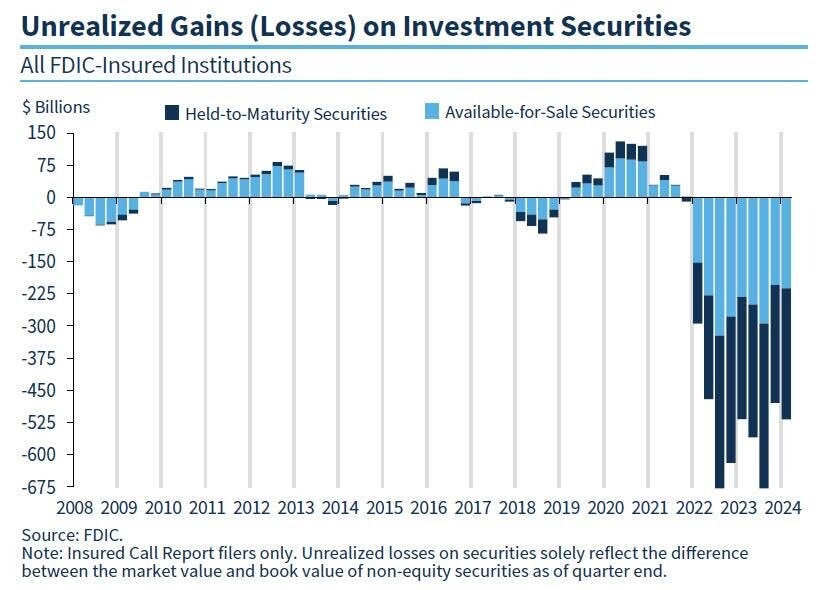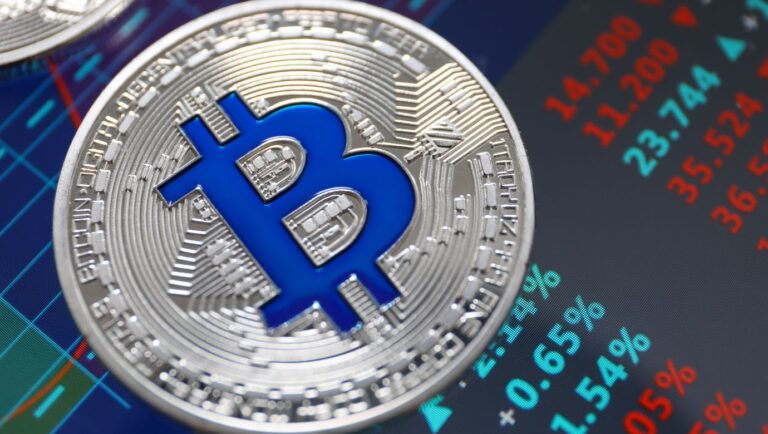Bitcoin could be weak at spot rates, sliding around 13% from $74,800 amid intense liquidation pressure.
Even though prices are retreating from all-time highs and $66,000 proves to be a mirage, analysts are optimistic about what lies ahead. Most expect the coin to reach the all-important psychological line, namely $100,000, in the coming days or weeks.
A banking crisis in the United States?
This rise would be accelerated by the fact that Bitcoin relies on the “digital gold” narrative which is rapidly gaining ground amid growing concerns about the financial health of banks in the United States.
Taking from X, an observer Remarks A report from the Federal Deposit Insurance Corporation (FDIC) shows that 68 banks in the United States are sitting on more than $500 billion in unrealized losses. Most of these losses in their various portfolios come from investment securities and are compounded by rising mortgage rates.

In its report, the FDIC notes that this is the ninth consecutive quarter in which banks continue to hold “unusually high unrealized losses.” If this persists, there is a real risk that these banks will destabilize financial markets in the United States.
The current situation of banks in the United States draws parallels with the 2008 GFC. However, any banking instability could favor Bitcoin and safe-haven assets like gold. As history has shown, following the collapse from Silicon Valley Bank (SVB), Silvergate Bank and Signature Bank, the prices of BTC and ETH increased.
Managers may be forced to reevaluate their positions if the upward trend in U.S. FDIC unrealized losses continues in the coming quarters.
Insights into the BTFP and CRE program: is it time to consider Bitcoin?
In this scenario, the US Federal Reserve’s Emergency Bank Term Financing Program (BTFP), launched in response to the bank failures of early 2023, could play an important role.
This program, which offers weak bank loans in exchange for collateral, could strongly support the banking system, influencing BTC prices.
Beyond that, the commercial real estate (CRE) market appears more troubled. While Neel Kashkari, president of the Federal Reserve Bank of Minneapolis, recently minimized Faced with the risk of a widespread crisis, it is widely recognized that certain large banks, particularly those facing more unrealized losses, are exposed to significant risks.
Although the implementation of stricter regulations after the 2007-2008 GFC will help, it remains to be seen how the system will absorb shock in the event of cracks. If this happens, BTC will likely benefit from the current consolidation.
Featured image from Canva, chart from TradingView


